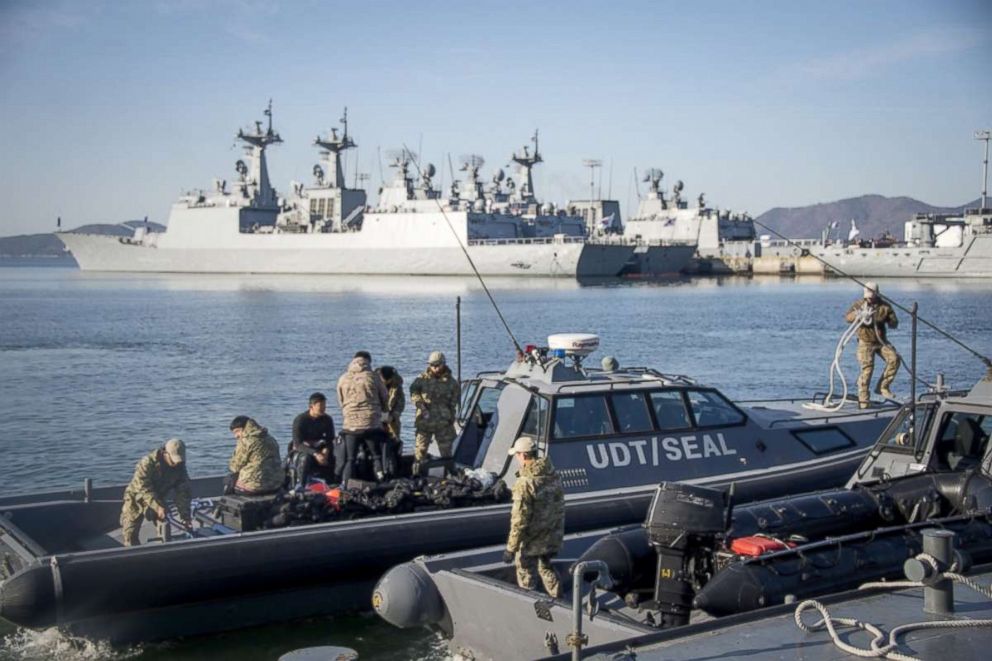US agrees to delay joint military exercises with South Korea until after Olympics
The joint exercises would be delayed until late March or April at the earliest.
— -- The Trump administration has agreed to delay U.S. and South Korean joint military exercises until after the Pyeongchang Winter Olympic Games.
A White House statement confirmed on Thursday that President Trump agreed to "de-conflict" the exercises during a phone call with South Korean President Moon Jae-In so that U.S. and South Korean forces "can focus on ensuring the security of the Games."
North Korea views the exercises as a provocation, but speaking with reporters at the Pentagon, Secretary of Defense James Mattis called the decision "practical" and not political, citing logistical pressures on the South Korean government during the Olympics.
Mattis added that the exercises would be delayed until after the Paralympics as well, which are held following the Olympics Games from March 8-18.

The joint U.S. and South Korean exercises, Key Resolve and Foal Eagle, are typically held in the months of March and April and involve thousands of U.S. troops training in the defense of South Korea.
South Korean press quoted President Moon as telling Trump he was concerned about additional provocations from the North Korean regime, which launched 15 ballistic missile tests and conducted a nuclear test in 2017.
In a sign that North Korea was warming to diplomacy this week, a military hotline between North and South Korea was re-established for the first time in two years in order for Pyongyang to discuss sending a delegation to the Olympic Games.
Mattis told reporters on Thursday that he believed the talks were the result of international pressure and a way "for North Korea to start talking while keeping it contained to a benign issue."
He praised the three unanimous United Nations Security Council resolutions that placed additional economic sanctions on the regime.
"It is difficult for me to disassociate that [Kim Jong Un's] now wanting to negotiate on any issue with months and months of unanimous United Nations Security Council effort," Mattis said.




